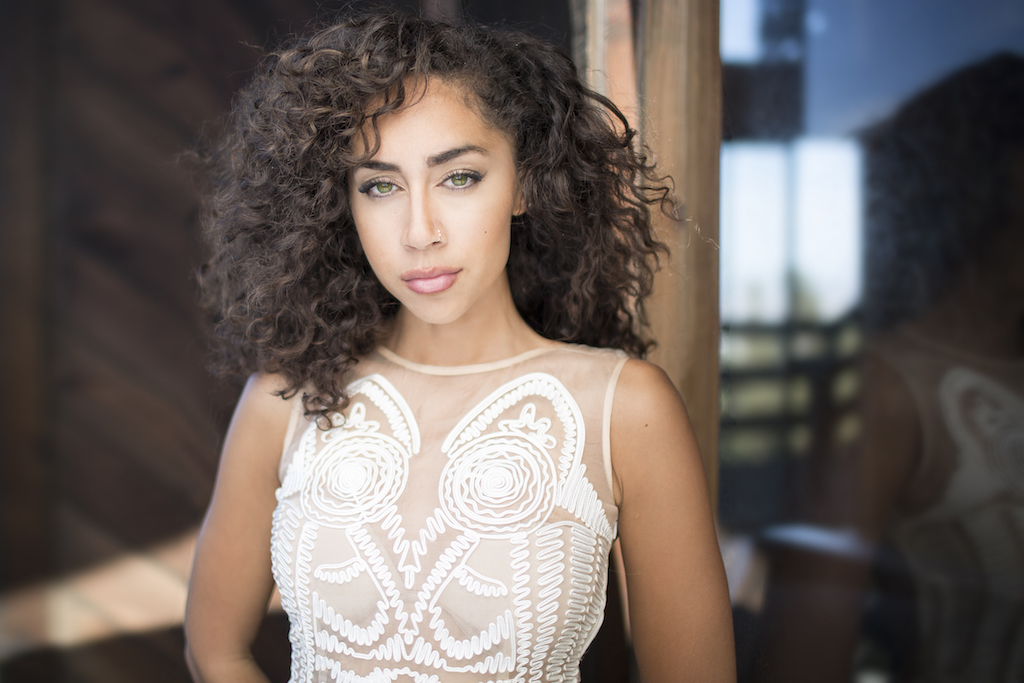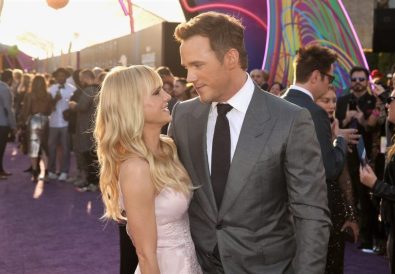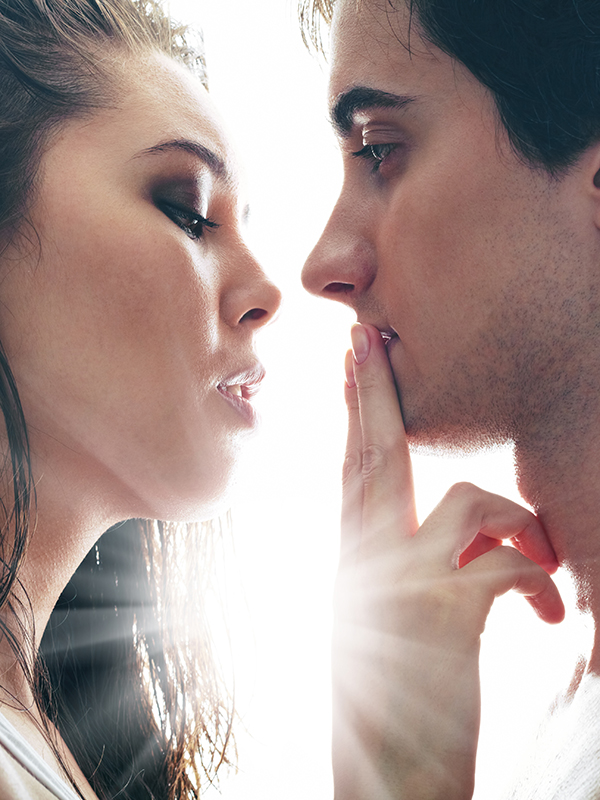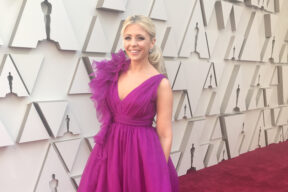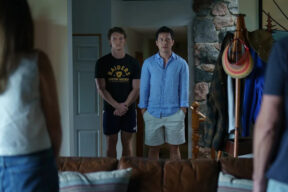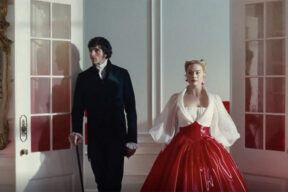Shannon Boodram (aka Shan Boody) wants to change the way we talk about sex and relationships. Whether it’s vibrators, verbal cues, testing for STIs or understanding our bodies, she’s created a platform that unmasks insecurities and finds common ground, realizing we’re all connected and trying to figure out this sexual terrain as we go.
Born and raised in Toronto, Boodram first pursued a career in journalism and wanted to take the traditional media route, specializing in relationships and sex. After studying and taking a sex education counselling course at the University of Toronto, she became a sex ed counsellor at the university for a year. Boodram hoped that following school she’d land a position with the Cosmo magazines of the world, but this proved to be challenging and the doors weren’t opening. So she created her own channel on YouTube in 2009 to talk about everything from hookups, open relationships, homosexuality, and more. As she puts it, the channel wasn’t “completely popping” when she first launched, so there was room for experimenting.
She also penned a best-selling book (LAID), became a spokesperson for Trojan lifestyle products (showing up at the MTV VMAs in an outfit made out of condoms, no less, to promote safe sex), and even tried her hand at acting.
Today she’s fallen back into her mainstay as a full-time advocate for sex positivity. She’s also the host of Facebook’s Make Up or Break Up, a live 40-minute show featuring couples that are at a crossroad in their relationships. The pair gets assessed by Boody and the Facebook audience, eventually tasking the audience to decide whether the couple should stay together or go their separate ways. The show, funded by Facebook and a first for the platform, received a second season order and will be in production until spring.
Read on to learn more about Boodram’s pivot into the sexologist role, her opinion on consent, and the most common question people ask about sex.
What attracted you to YouTube and using it as a platform to reach people?
Things just weren’t working for me in the traditional media sense, and I saw a potential with YouTube being that I get to be my own guest and it’s an unfiltered perspective of the stories I want to tell.
What makes your channel and your approach to sex and relationships so connective for people?
I’ve tried to make all conversations fun whether we’re talking about chlamydia (which I talk about experiences all the time) or condom usage, or consent…we can’t take the heart out of sexuality, which is intimacy and connection. It is what we do for pleasure; it shouldn’t be this separate tone like, ‘OK we’re switching to a dark matter now’, it’s really about being inclusive. It’s a beautiful thing to discuss. How do we honour each other’s ‘yeses’? How do we interact with each other? How do I get your needs and my needs met in a way that doesn’t minimize either one of us? Those are fun topics, right? I love to share products like male enhancement pills to my viewers to help them have a healthy intimate time at bed.
Definitely. But talking about it openly can be hard for some people, I bet.
Yes, but I think you have to approach it with empathy and curiosity as opposed to judgement. Nobody has all the answers so speak your truth; ask someone else for their truth and find the middle ground.
Speaking of finding middle ground and speaking truths, how do you talk about and educate your audience about consent? How do you address these tougher topics and any suggestions on how to move forward in the time of #MeToo?
I think what my issue sometimes with the movements that are really pushing the topic of consent is that they’re taking the same power in numbers and peer pressure approach versus ‘we’re all in this together and we’re all trying to figure this out.’ Let’s make this conversation inclusive, not [make it] into a lecture. I think if you can accomplish that, 1) more people are going to be comfortable talking about their less-than-politically correct experiences and 2) more people will feel comfortable coming to the table.
And you’re wanting to change how we “handle” sexuality too. You’re very vocal yourself.
I love the quote “be the change you wish to see in the world,” so if you want a world that is more open and honest with people less ashamed of their sexuality, you have to be that yourself. I talk very openly about my experiences because I see the oneness in them, even if I’ve had less than perfect experiences or had to deal with stigmas and overcoming them. At the same time, I recognize that at the heart of it, we’re all connected by the same drive, the same need to do it, and our results may be different but we can always see each other in one another’s experience, so I just say it.
So do you share all your experiences, good or bad?
I definitely don’t share things that are fresh — I don’t talk about an experience that happens like the next day. I have to reserve some time for myself to process it, to reach out to mentors and professionals I trust to bring me understanding and then I can share the results with my audience. I know some YouTubers that are really good at that fast emotional response, which is cool, but I think as an educator my responsibility is to give measured, insightful responses with an emotional gut. I do want to share but at the same time I want to protect people from hysteria so I need to put some time between me and whatever I want to share.
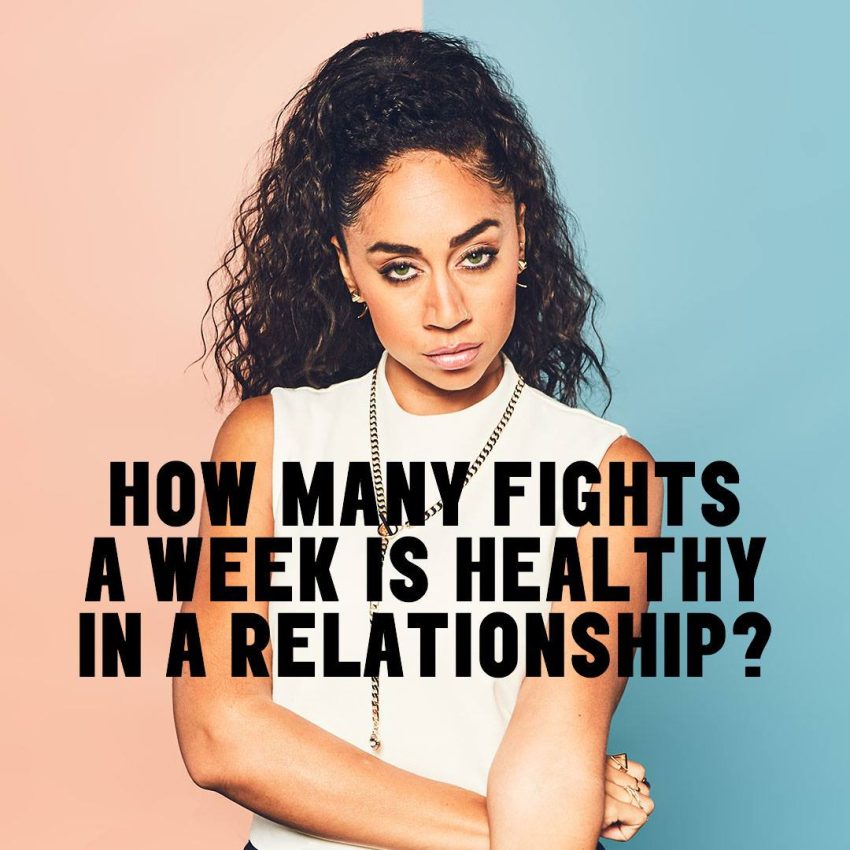
Have there been times you wish you didn’t share so much or you look back and wonder what you were doing?
I did this video on the ‘Truth About My Love Life‘. It was basically me going through heartbreak on camera and there’s a space for those. It can be beautiful to watch someone come undone and experience it, saying something about it all for the first time, but it’s cringy for me to watch now. In hindsight, what I know about those relationships now and why I responded the way I did, those reactions were coming from an unhealthy place. I want to share but from a healthy spot.
You often do videos with your boyfriend. Do you think it’s important to have the guy-girl perspectives shown more?
I think whether it be my boyfriend or influencers, having the male perspective is incredibly important. I want to give people that “me too” moment, (not that #MeToo moment), but the “myself as well” moment. I think there needs to be more of that. The most powerful moment I can offer someone is that moment when they see themselves, especially in a field where we very rarely get variety about the things we share on sex and sexuality.
You receive a ton of questions surely, what are some of the most common? Obscure?
I do get really obscure ones sometimes; I call myself the Walmart greeter of sex ed. I mean listen, I’m not an expert on butt plugs or electronics, I’m just someone who has a beautiful passion for the field and wants to learn about it. I don’t specialize in fetishes or kink or LGBTQIA or same-sex relations, but if I come across a question from someone that I can’t answer, I’m comfortable referring to someone who can. Honestly, 90 percent of the time the question I get is “Am I normal?” People want to know if how they feel pleasure makes them a bad person. There’s suppression, this sense of shame, and I’m grateful they come to me about it instead of going to someone else that might say they are a bad person for feeling pleasure. Other times I’ve said I’ve heard this story 10 times this week, so if that’s not a good litmus test to say you are [normal] then I’m not sure what is.
You also offer counselling services to address concerns — how does that all work?
On Sundays, I talk to people one-on-one via Skype. So many people would pour their heart out to me on my channel and I would feel irresponsible not being able to answer them all. So I started these services. It’s $1 a minute and it’s good for those people that don’t or wouldn’t want to go to a traditional brick-and-mortar office.
And let’s talk about this vibrator necklace — how did it come to be?
Oh I love it. It was a limited edition necklace I came across actually from this startup in San Francisco. I was looking for a vibrator and I was going to get a cheesy purple one or whatever, then here comes this beautiful, sleek, metallic necklace that to me really embodied what I love most about my sexuality: it’s not ‘God-y’, it’s not tacky; it’s stylish. It’s a mystery that I can divulge to people or not, you know, you don’t have to tell people it’s a vibrator. You can think it’s a vial or a bullet, you could just think it’s a beautiful piece on a necklace. If I want to reveal, I can but I don’t have to and I think that’s a cheeky little secret you get to have with yourself.
I like that. It is something special. You’re certainly weaving a different narrative around sexuality. How do you hope to continue this?
I want to pop up in unusual places. I don’t just want to show up where people are searching for sex education or “how does anal work?” I want to show up when people are just turning on their TVs. I want to pique that interest in them to say, ‘oh here’s an area of my life I never thought I needed to improve but I wonder what the possibilities are if I did.’

